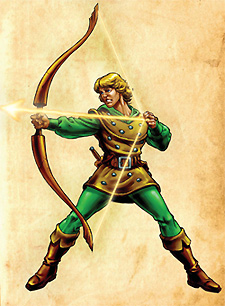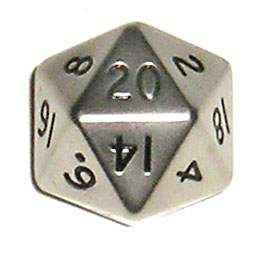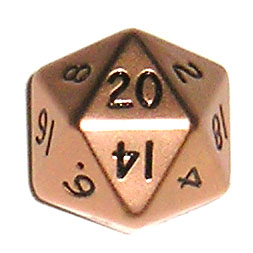Liam
Stark II PC Staff ShadowRun B oldEsplanade Kallistier WhatNot Rune Bound Esplanade
 Offline
Offline

Awesome.
Posts: 656
|
Wil Wheaton's Geek In Review: Keeping The Borderlands Alive
WEDNESDAY DECEMBER 17 2008 6:00 PM
Submitted by WilWheaton. Edited By nicole_powers.
TAGS: Dungeons & Dragons, gaming, gamers, RPG, RPGs,
Last week, I spent an entire day playing Dungeons & Dragons Fourth
Edition with some of my friends. Big whoop, you say. So did I. Ah, but
I played in Seattle. With Gabe and Tycho from Penny-Arcade. And Scott
Kurtz from PVP. And, to really twist the +3 dagger in your back, our
DM was Chris Perkins from Wizards of the Coast, who made an adventure
specifically for us to play. For the crushed peanuts and maraschino
cherry topping on this sundae of HAWESOME, I got to play a class from
the unreleased Player's Handbook 2. We recorded the entire session for
a podcast, which will be released early next year.
Did I mention this class is unreleased? Because it was. I played a
class that you haven't seen yet. I just want to make sure I get full
bragging mileage out of this. I posted a little bit about it on my
blog and Twitter (I can't go into specifics, for obvious reasons
*cough* awesome unreleased class *cough*). I should not have been
surprised (but I was) to find out that a lot of people seem to want to
know what I think of D&D Fourth Edition.
If you're not a serious tabletop gamer, you may be surprised to learn
that this version of D&D was extremely controversial in the gaming
community. Mr. Peabody, fire up the Wayback Machine . . .
In August of 2007, Wizards of the Coast announced that they were
updating Dungeons & Dragons to a new, fourth edition. I was mostly
happy with the current edition, but I was cautiously optimistic.
"Maybe they've absorbed a lot of feedback from gamers who played 3.0
and 3.5, and they're cleaning things up accordingly," I thought. (Yes,
there really was a third-and-a-half edition. That's a topic for
another column, ideally written by someone else.)
By October of 2007, I had heard a lot of crazy talk. Nothing was
sacred, they were saying. Magic Missile was going to require a to-hit
roll and there would be some kind of dragon character race. As I
absorbed each bit of new, my condition was downgraded, from cautiously
optimistic to increasingly wary. "Nothing is sacred? Dragons are for
killing, not for playing! What next, are they going to replace the
swords with walkie-talkies?" There was a definite "WTF? Han shot
second?!?" vibe in the community. Gamers, like hardcore SF geeks, tend
to fear change. Especially change which we determine, sight unseen, to
be stupid.
I didn't spend a lot of time thinking about Fourth Edition until May,
when I got a copy of The Keep on the Shadowfell, a first-level
adventure with some pre-made characters and simplified rules, designed
to be a teaser before the core rule books went on sale in June. I
paged through it with as open a mind as I could muster, and though I
saw that the rumors about Magic Missile and Dragonborn were true, I
liked pretty much everything else I saw. In fact, it looked like it
could be a lot of fun, and it reminded me more of the streamlined Red
Box "Basic D&D" system I played when I was a kid than of the
math-heavy, table-laden version of AD&D I traded for GURPS when I was
a teenager.
I lucked into a set of core rule books a week before they were
officially released. My world came to a complete halt while I devoured
them. I'll eventually give each one its own review, but the short
version is: The Fourth Ed Dungeon Master's Guide is the book I've
wanted to read since I was 12. Everything you want to know about
running a game — and having fun doing it — is in this book. I have a
ton of experience playing D&D, but very little experience running
games. I still wear a scarlet letter for several total party kills
when I was a kid; this book gave me the confidence and guidance to sit
behind the DM screen again. The Player's Handbook has a terrible
index, and they made the mistake of telling us early on that something
does "1[W] + Wis" damage without telling us what [W] is until the end
of the book (SPOILER ALERT: it's weapon damage, like 1d8 or 1d12 or
2d4+6. Also, the monsters are calling from inside the castle!), but
other than that, it gives you everything you need to create and outfit
a character. The Monster Manual is full of Monsters. 'Nuff said.
I didn't actually get to play a game (stupid real life
responsibilities) until last week, but reading the 4E core rule books
inspired me to get all of my D&D 3.0, D&D 3.5, GURPS, True20, Mutants
& Masterminds, and World of Darkness books out and remember exactly
why I started playing these games in the first place. I didn't have to
look very long; it was printed right inside the cover of the Player's
Manual in my very first Basic Rules Set (the red box that served as my
introduction to the system). "This is a game that is fun. It helps you
imagine." You'll notice that it does not say, "This is a game that
helps you feel superior to other people because you can calculate
THAC0 in your head before the dice stop rolling," or "This game is
deliberately designed to exclude anyone who doesn't have a degree in
higher mathematics." When I played Fourth Edition, it was like they'd
taken everything I didn't like about D&D, everything that had made it
overly complicated and cumbersome, and thrown it all away. All that
was left was the best lessons taken from 3.0, and the philosophy that
made basic D&D so much fun in the first place.
So now you know where I'm coming from, but I need to add one
disclaimer before I describe my impressions of 4E: I've only played
once. It was for 10 hours, and it was with people I really, really
like, but it was just one adventure. Having said that, however, what I
experienced fulfilled and even surpassed the expectations I had after
reading the core rules, a couple of adventure modules, and talking to
people who play 4E in their weekly game. In the briefest of terms, it
was hella fun.
How does it play? I think the best way I can describe it is: simply,
without being simplistic. Gamers who play an RPG have to decide for
themselves why they're setting aside the time and making the effort to
get together. Almost every time, whether people have fun comes down to
the DM and the players. It took me years of gaming, and no small
amount of frustration, to conclude that a system's rules should
provide a structure and some basic expectations for the game, but that
a campaign or adventure is more fun when it's supported by the rules,
instead of being defined by them. (Caveat: No game is suitable for
everyone. If you can't stand horror movies, you won't have a good time
playing World of Darkness, no matter how much you like the system and
your fellow players. Further caveat: There are some badly designed
games out there. I'm not talking about games with design decisions you
disagree with; I'm talking about games with contradictory rules,
broken cross-references, poor or no indexing, and probably little to
no playtesting.)
My 4E experience started with character creation, which I did sitting
on the floor of my office with pencils and paper, the Player's
Handbook, and the Adventurer's Vault. I know there are online tools
available to do it all for you, but I couldn't bring myself to use
them; I'm an original analog gamer, man, that's just how I roll. (4d6
and drop the lowest FTW.) It took awhile because while I had read the
books, I had never tried to use them, and there was some page-flipping
while I wrapped my brain around the system. However, and this is
crucial, I never got frustrated or felt bored. The process took some
time because I had a learning curve and because there are several
decisions to make, not because I was confused or because the rules
were disorganized.
Now, to address some of the things I worried about before I played 4E.
I keep hearing people complain that 4E is just WoW on the tabletop.
Quite tellingly, I haven't heard this from anyone who has actually
played 4E, but I understand the concern, especially if you're only
looking at the combat rules in the store and listening to people
complain on the Internets. Many of us have a lot invested in our 3.0
and 3.5 books, and may not want to take a chance on something that's
going to be just like a damn video game. Aren't we playing this to get
away from video games? I haven't played WoW and don't really care to,
but if Blizzard's combat system is this fast and easy to understand,
and this much fun, I can see the appeal. Every player got to do
something important to help the party, and all of us contributed to
each challenge, whether it was solving a puzzle, disarming a trap, or
actually fighting lots of monsters.
(Speaking of WoW, I wonder if WoW is, for some gamers, "the other
woman," threatening to split the party with a siren's call that's
taking potential players out of our world and never giving them
back...could that be why so many hobby gamers hate it so much? And if
so, wouldn't it make more sense to hate on CCGs, which sucked away RPG
players ten years before anyone knew what Warcraft was? Hey, as long
as I'm kicking over anthills today, I'm going to make sure I stomp on
as many as I can.)
You may have heard that player characters are much stronger at lower
levels and that it's harder to die than it used to be. That's true. I
can only speak for myself, but I don't see the problem. I like that my
character isn't going to die from one encounter at first level. I like
that I can use cool powers and feats and feel heroic right out of the
gate, instead of slogging through several rooms of kobolds or
skeletons, with numerous breaks to rest and heal between each
encounter.
Speaking of healing, player characters get to use a certain number of
healing "surges" each day, sort of like guzzling down an energy drink
when you're pulling an all-nighter and start to flag. This does indeed
fundamentally change the game I grew up playing, but I can't believe I
ever campaigned without it. I don't want to keep going back to town
whenever I have a tough fight. I want to keep exploring the world and
meeting new NPCs. I want a trip back to town to really mean something,
either that we've made some major progress in the campaign and have
something to report, or we barely escaped a Gelatinous Cube and had to
follow Sir Robin all the way back to Winterhaven, eating his minstrels
on the way. (Yaaaaay.)
I'm not going to attack people who can't stand 4E the same way I've
seen some anti-4E people attack others for liking it, because that
just reminds me of watching two guys with ponytails argue about which
Linux distribution is better while they ignore the stripper grinding
on the rail right next to them. (She's working really hard for those
singles, guys. Show some respect.) I will say to the 4E haters,
though, that Hasbro's idiotic handling of third-party 4E support (also
a topic deserving its own column) has effectively alienated a huge
portion of the indie publishing world, and there's going to be plenty
of 3.5 support out there for a very long time. Paizo's Pathfinder and
Green Ronin's True20 seem to make a lot of people very happy, too, and
there are a ton of other systems out there, so it shouldn't be too
hard to find something that fits your game and your circle of friends.
I've been playing Dungeons & Dragons for 2d12 years. I remember when
magic-users couldn't wear armor, when edged weapons didn't hurt
skeletons, and even when an elf was a class. I have more polyhedral
dice than [SOMETHING NORMAL PEOPLE HAVE A LOT OF]. I routinely tell my
wife and friends that I have to "save vs. shiny" when I go to my
friendly local game shop, and I didn't realize that graph paper
existed for a purpose other than making dungeons until I'd been in
high school geometry for a semester...and even then, I remained
skeptical.
Few things in the world make me as happy as gaming, and I have two
shelves of RPG books to prove it. I have a lot invested in those
books, not just money, either, but time and memories. Each time I hear
that one of the systems I care about is in danger of getting the
Jar-Jar business, I have to save vs. kill crush destroy. At
substantial minuses. If you'd told me six months ago that I'd be
sitting here today writing about how much I love D&D Fourth Edition, I
would have laughed in your face and called you a silly person. It is
almost certain that I would have taunted you a second time, called
your parentage into question, farted in your general direction, and
observed that you were best suited for a career in empty animal food
trough wiping.
Yet here I am, anxious to go pick up my Fourth Edition Manual of the
Planes, and counting down the days until Winter Break so I can take my
kids and some of their friends to the Keep on the Shadowfell, where I
will get to play Kalarel himself, and try really hard not to kill them
all in their first few encounters. Remember, it doesn't matter what
edition of what game you're playing ... a system is only as good as
its DM and its players.
Wil Wheaton rolled a critical failure vs. make deadline this week.
Sorry, Nicole!
------------------------------------
|




 Home
Home

 Help
Help

 Search
Search

 Login
Login

 Register
Register





 Pages: 1
Pages: 1

